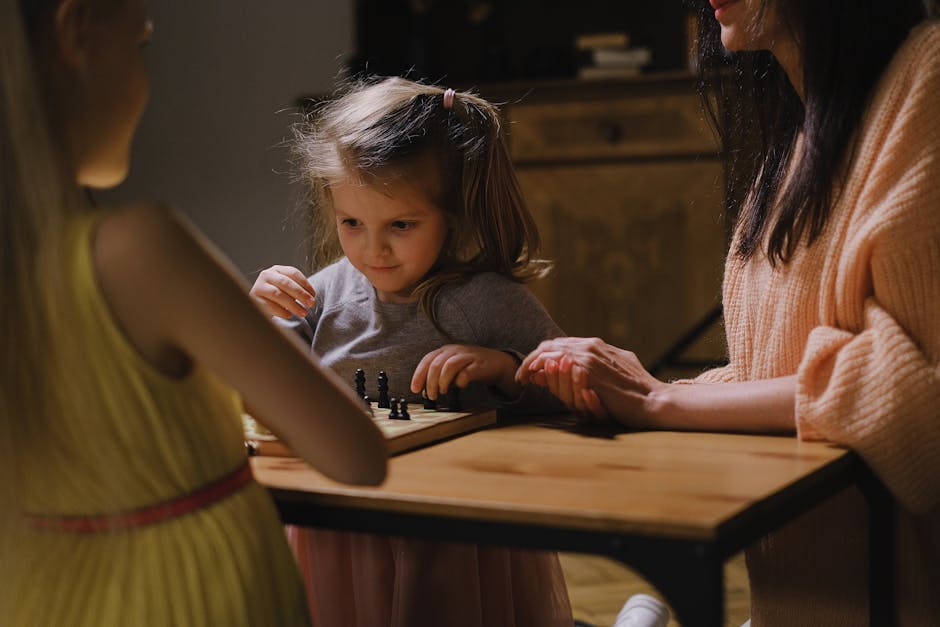A cornerstone of positive sibling relationships is a parent’s ability to model healthy interpersonal skills. Children learn by observing and imitating; therefore, parents who demonstrate respectful communication, empathy, and conflict resolution in their own relationships, especially with each other, provide a valuable template for their children. Regular expressions of affection and appreciation between parents, even amidst disagreements, convey the message that healthy relationships require effort, understanding, and compromise. This observational learning is crucial; children witness how adults navigate challenges and build connections, internalizing these patterns for their own interactions. Moreover, parents modeling patience and active listening when engaging with each child individually demonstrates respect for each sibling’s unique personality and needs, paving the way for mutual respect within the sibling dynamic.
Equally important is a parent’s ability to facilitate healthy conflict resolution between siblings. Disagreements are inevitable; the key lies in guiding children toward productive conflict management rather than simply suppressing conflict. Parents should strive to understand the underlying reasons for conflict, avoiding quick judgments or taking sides. Active listening, encouraging each child to express their perspective, and helping them articulate their needs are crucial steps. Instead of imposing solutions, parents can act as mediators, guiding siblings toward collaborative problem-solving. Techniques like brainstorming solutions together, identifying compromises, and teaching negotiation skills empower children to manage conflict independently, strengthening their communication and problem-solving abilities. This process fosters a sense of fairness and mutual understanding, vital components of a strong sibling bond.
Furthermore, avoiding comparisons between siblings is paramount. Each child is unique, possessing distinct talents, strengths, and weaknesses. Constantly comparing one sibling to another, whether explicitly or implicitly, undermines individual self-esteem and fosters resentment. Highlighting each child’s individual achievements and celebrating their unique qualities reinforces self-worth and reduces competition. Focusing on individual progress rather than relative performance creates a supportive environment where siblings feel valued for who they are, rather than how they compare to their siblings. This promotes a sense of individual identity and reduces the pressure to compete for parental attention or approval.
Promoting individual time with each child is another crucial aspect of nurturing strong sibling relationships. While family time is essential, dedicated one-on-one time allows each child to feel seen, heard, and valued independently of their siblings. This individual attention strengthens the parent-child bond, which, in turn, enhances the child’s self-esteem and sense of security. A child who feels secure and loved is more likely to approach their sibling relationships with empathy and understanding. These individual interactions also allow parents to gain a deeper understanding of each child’s unique personality, needs, and perspectives, providing valuable insight into the dynamics of their sibling relationship.
Encouraging cooperation and teamwork is another effective strategy. Parents can create opportunities for siblings to work together on projects, games, or chores. These shared experiences foster collaboration and build positive memories. Joint activities such as building a fort, preparing a meal, or working on a school project encourage teamwork, shared responsibility, and a sense of accomplishment. These collaborative activities help siblings learn to appreciate each other’s strengths and contribute to a shared goal, fostering a sense of unity and mutual respect. Moreover, successfully completing tasks together builds confidence and reinforces positive interactions, strengthening their bonds in the process.
Family rituals and traditions play a significant role in strengthening family bonds, including sibling relationships. Regular family dinners, game nights, vacations, or even simple bedtime stories create shared experiences and cherished memories. These rituals provide a sense of belonging and stability, fostering a feeling of connectedness among siblings. They also provide opportunities for siblings to interact positively, share experiences, and build lasting bonds. Consistency in these rituals instills a sense of predictability and security, particularly important for children’s emotional well-being and contributes significantly to a positive sibling dynamic.
Finally, teaching children conflict resolution strategies and emotional regulation is crucial. This involves equipping them with the skills to manage their emotions effectively and resolve disagreements peacefully. Parents can teach children techniques like deep breathing, counting to ten, or using “I” statements to express their feelings without blaming others. By teaching children these skills, parents empower them to navigate conflicts constructively, fostering healthy communication and improving their ability to maintain positive relationships with their siblings. This self-regulation also promotes empathy and understanding, leading to more resilient and supportive sibling bonds.
In conclusion, fostering strong sibling bonds requires a multifaceted approach that incorporates attentive parenting, proactive conflict resolution, and a focus on each child’s individual development. By modeling healthy relationships, mediating disputes constructively, promoting individual strengths, and encouraging cooperation, parents can significantly influence the quality of their children’s sibling relationships. These relationships, built on a foundation of mutual respect, understanding, and love, will undoubtedly enrich their lives for years to come. The effort invested in cultivating positive sibling dynamics yields substantial long-term benefits, shaping not only the children’s present but also their future relationships and overall well-being.
